It turned out to be not a bad idea to do the cleanup as the
team leader Jason told us some facts about how plastics are damaging our
environment, especially the ocean. And what we could do to turn the situation
around.
Plastics are so common in our daily lives, but if it’s not disposed properly, it could end up in the ocean. When the fish in the ocean eat those plastics, they could be poisoned. And if we eat those fish, the poison could end up in our body.
I couldn’t help but think about a scene appeared in Blue Planet II – a fish was entangled in a net. It appeared to be so innocent. What are we doing to their home?
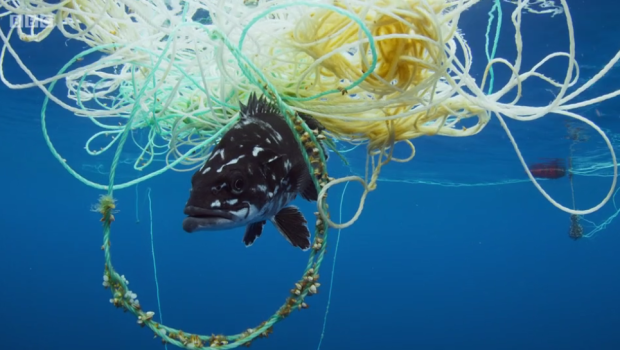
A fish entangled in a net – from Blue Planet II
Blue Planet II is a 2017 British nature documentary series on marine life produced by the BBC Natural History Unit. This landmark seven-part series bring viewers face to face with unexpected new landscapes and introduce compelling contemporary stories from our ocean. Over the course of more than four years, the Blue Planet II team have mounted 125 expeditions, visited 39 countries, filmed across every ocean and spent over 6,000 hours diving underwater to bring us closer than ever before to the captivating lives of some of the most extraordinary sea creatures.
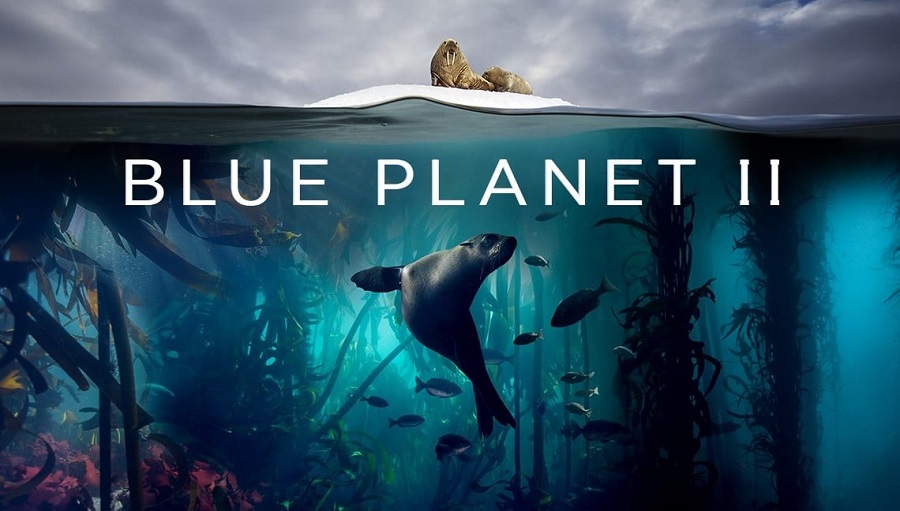
Blue Planet II from BBC
In the last episode of this film called Our Blue Planet, Sir David Attenborough examines the impact of human life on life in the ocean. With evidence of albatross parents unwittingly feed their chicks plastic, mother dolphins potentially exposing their new-born calves to pollutants through their contaminated milk, and even man-made noise drowning out the natural sounds animals use to communicate, many creatures are struggling to survive.
Despite these devastating impacts, this film contains an inspiring message of hope. In the Galapagos one scientist has devoted much of his life to saving the largest fish in the sea - the whale shark. In the Caribbean, a community is working to save giant leatherback turtles by protecting the eggs and animals they once took as food.
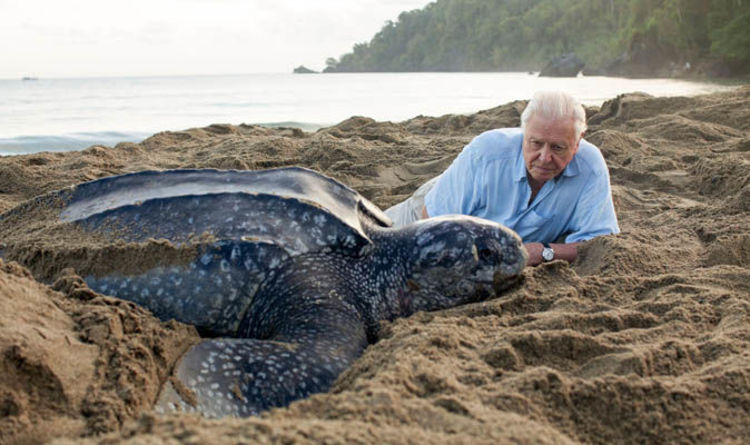
Attenborough is watching a leatherback turtle struggling ashore to lay eggs.
A boxset of the Blue Planet II DVDs, with a private letter from presenter Sir David Attenborough, was presented by Theresa May to Chinese leader Xi Jinping during her visit to China on 1 February 2018, expressing the determination to end the plastic pollution with China. We could see how British are committed to save our planet by bringing major polluting countries together. Now, China is the world's most polluted country. We’ve achieved great economic development, but at the expense of our environment. Some kind of action has to be taken and we all could make a small contribution starting from right now.
Picking up trash along the coast was what we were doing in our part to save the ocean. Starting from Xichong, we trekked along the coast half way towards Dongchong, then we returned back to Xichong along the same route. Along the coastline, we enjoyed the gentle breeze touching our faces and great views nature offered us. But we also had some bad experiences. On several occasions, we smelled strong stinking smell given off by dead sea animals. We could be responsible for their death, I thought, as the ocean is polluted by us.
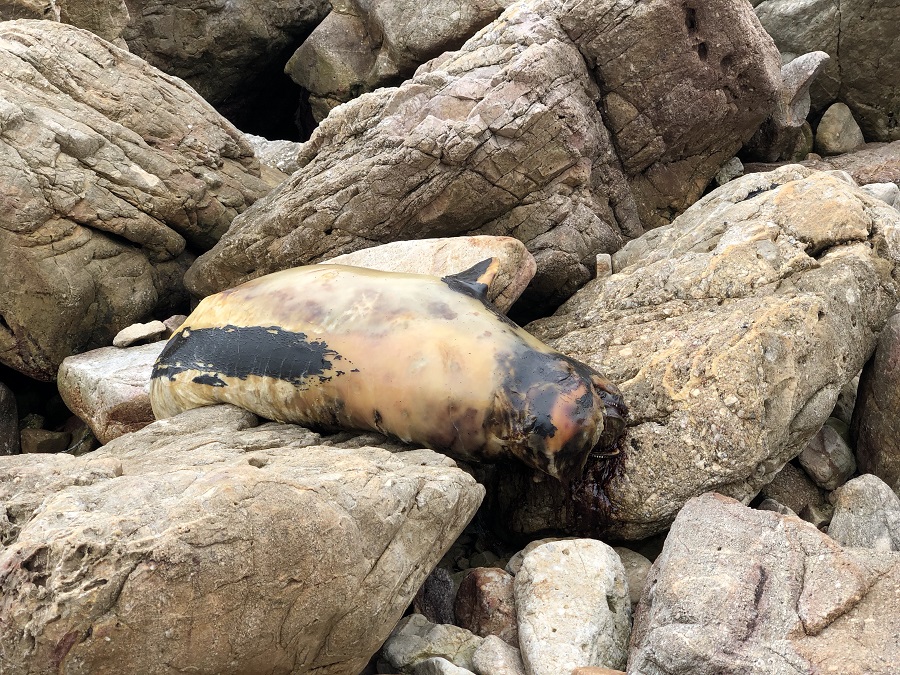
The dead seal gives off stinking smell.
Along the coast, plastic bags, water bottles, and foams are major pollutants. They were must be thrown by hikers and fishermen. To reduce those wastes, our 50-member team is far from enough. We must help to promote the environment awareness of hikers and fishermen. By leading by example, we were hoping that what we were doing would have some kind of positive influence on tourists who happened to pass us by. Some tourists gave us thumbs up and some thanked for our hard work.
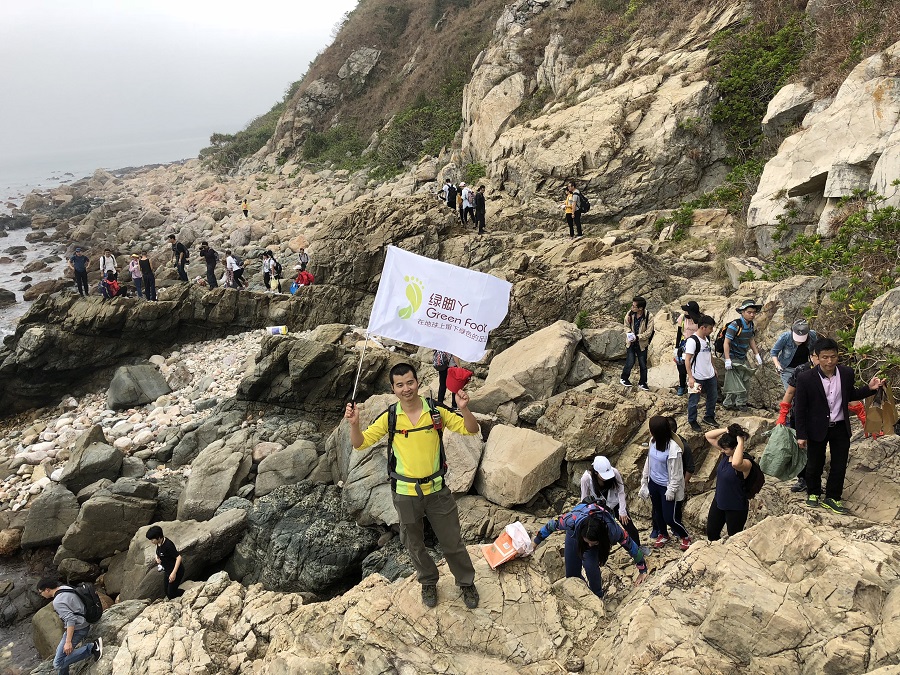
We are cleaning up the coast.
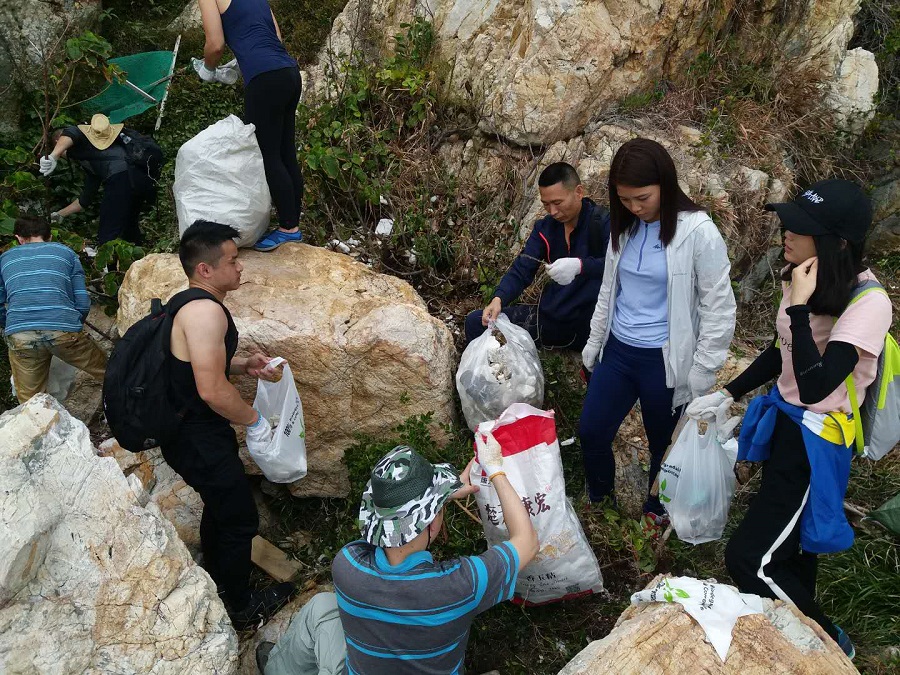
We are getting our hands dirty.
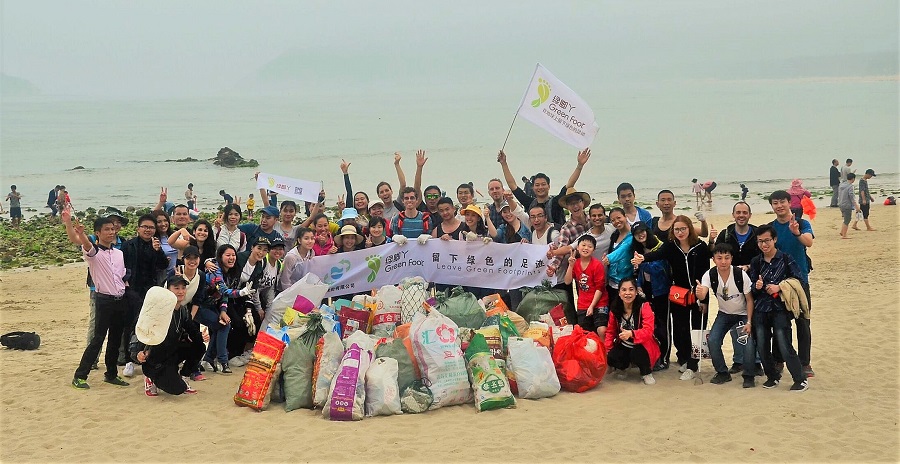
Group photo with all the trash we picked.
March 3rd, 2018 will be remembered as the day when we made a positive impact on our planet. Green Foot will be remembered as an organization which brought us together.






Comment